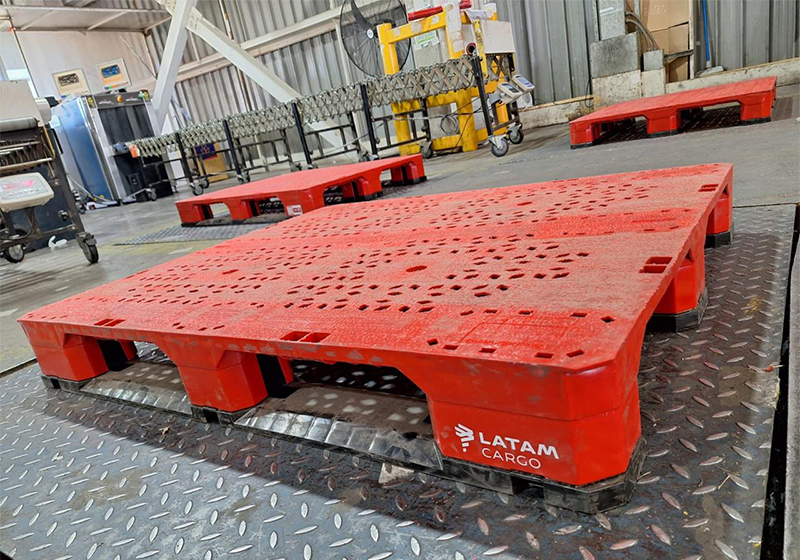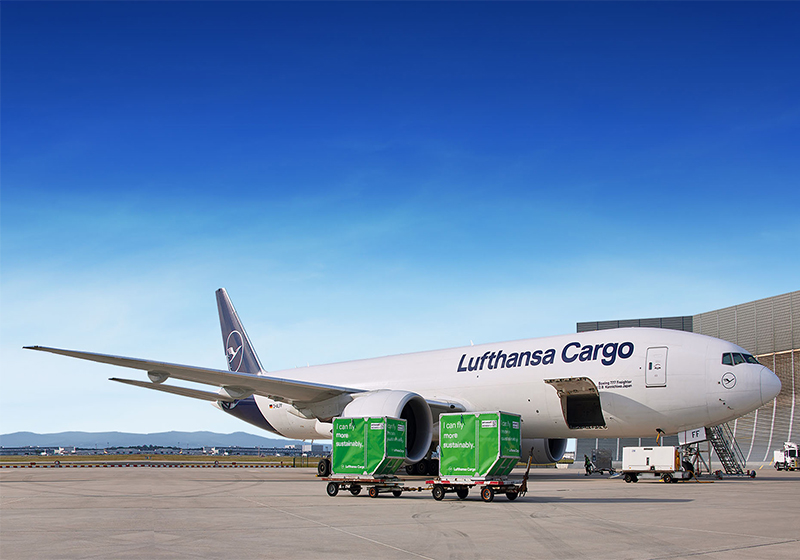More resistant, durable, and with a lower environmental impact, these new recycled plastic pallets will largely replace the current wooden and conventional plastic pallets used in LATAM Cargo Group's operations in Chile. This pioneering initiative is part of the LATAM group's commitment to achieving its goal of zero waste to landfill by 2027.
Currently, plastic or wooden pallets are used to transport bulk cargo from the warehouse to the aircraft. In the case of domestic cargo operations in Chile, these were replaced by high-density recycled plastic pallets that have a lifespan of approximately a decade, significantly longer than a conventional pallet.
“Sustainability is a priority for LATAM Cargo Group and the transition to recycled materials, such as plastic pallets, reflects our commitment to the circular economy and the goal of being a zero waste to landfill group by 2027. In line with this, the use of recycled plastic pallets adds to initiatives already implemented in other operational processes, such as replacing plastic with reusable blankets or a stretchable tape,” says Cristina Oñate, VP Sustainability and Product at LATAM Cargo Group.
These pallets, manufactured by REHRIG PACIFIC COMPANY, are made with HDPE (High-Density Polyethylene), in a percentage of recycled material and another virgin - they are 50% made from recycled boxes and the other 50% is conventional plastic. This alternative not only improves the resistance of the pallets but the distinctive red color they use due to the origin of the material facilitates their identification, being the only operator in Chile that uses this color, thus optimizing their return.
Compared to traditional pallets, they are lighter, more resistant and do not require constant maintenance, as well as being more hygienic, as they do not accumulate fungi or bacteria. Their non-slip structure also minimizes the risk of cargo displacement, even in extreme temperatures, withstanding from -20°C to 60°C without losing their properties.






